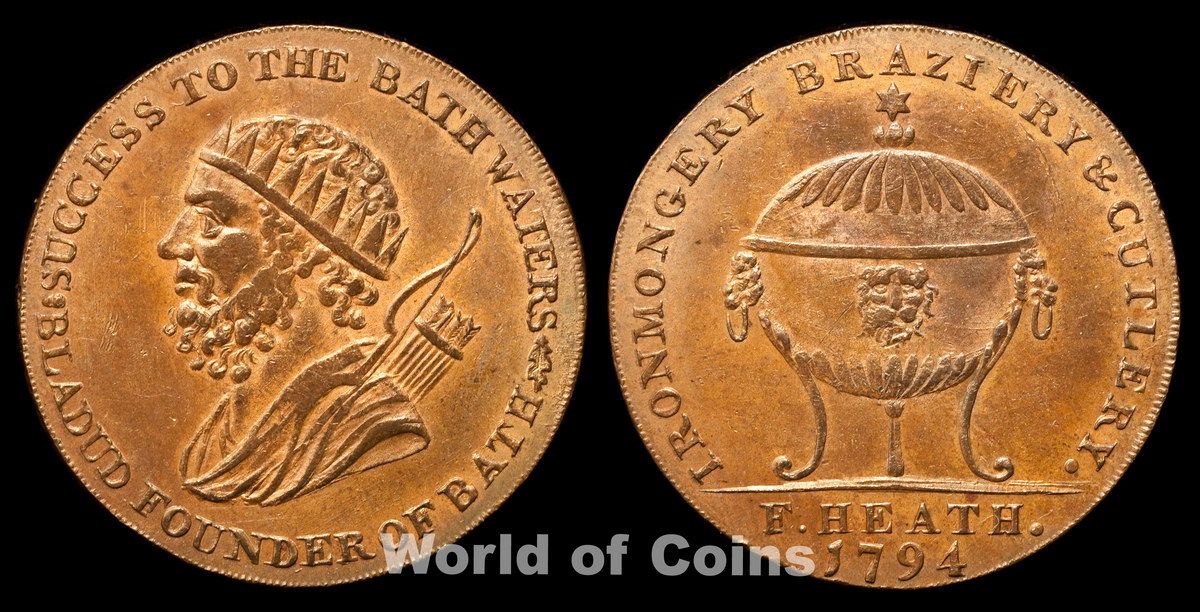
Online collections
monedastodas.com
All collections » Tokens » Bath Halfpenny
On the obverse is a bust of King Bladud, topped with an antique crown, with an oriental bow and a quiver of arrows behind his back. The circle legend reads: "SUCCESS TO THE BATH WATERS BLADUD FOUNDER OF BATH."

The reverse shows an eighteenth-century
water-boiling titanium surmounted by a hexagonal star. The circle
legend reads: "IRONMONGERY BRAZIERY & CUTLERY" (Manufacture of hardware and
cutlery). At the bottom: "F. HEATH.
Edge inscription: "PAYABLE BY F. HEATH
BATH".
Engraver Wyon (Wyon), manufacturer
Lutwyche (Latwich). Circulation 5 cwts (1 cwts = 100 lb = 45.359237
kg).
The customer of the token, F. Heath, was a manufacturer and trader of hardware and cutlery in Bath.
It is difficult to say why the ancient British leader needed to be portrayed in this way, unless there was an intention to give him an unusual and barbaric appearance.
Bloodud (Vol. Blaiddyd, 10th century BC - 909 BC) was the eldest son of Rud Gudibras, the ninth king of Britain. His father sent him to study the liberal arts in Athens. After the death of his father, Bloodud returned home sick with leprosy and was taken into custody in order to prevent the spread of the infection. He managed to escape and find work on a pig farm in Swanswick. One day he noticed that the pigs leave the farm somewhere and return all covered in mud, after which their skin ulcers disappear. Bloodud followed the pigs and found the thermal springs, with the help of which he was cured of his illness. After that, he returned to his father's palace and began to rule the country, and on the site of the springs, in commemoration of his healing, he founded the city of Bath. In 1775, traces of Roman baths were discovered in the city. During the late 18th and most of the 19th century, Bath was the center of British social life for the aristocracy and celebrities. The city appears in the novels of Jane Austen and Charles Dickens.
The tea titanium shown on the reverse side was made of silver or copper and was an integral part of the tea table. The customer of the Hit token was also engaged in the production of such titans.